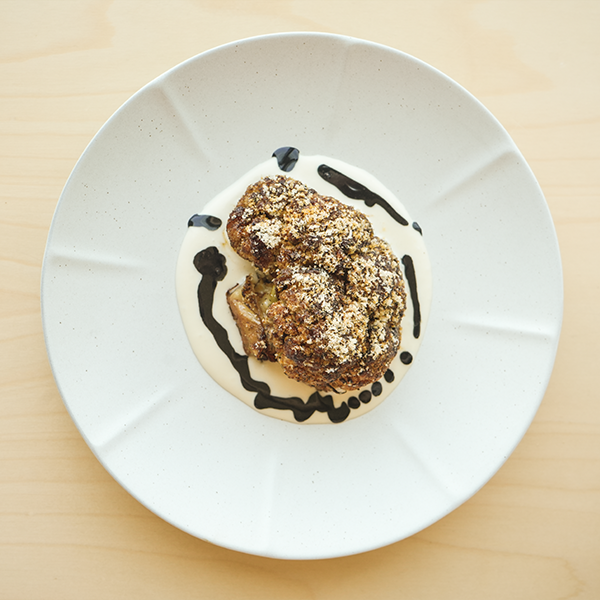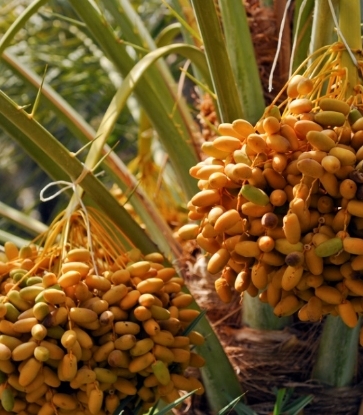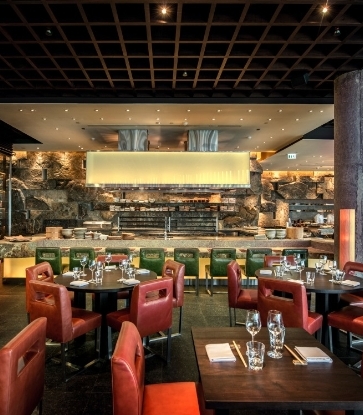Nowadays, being seasonal has become one of the ways chefs work toward becoming greener in the world of gastronomy. Incorporating in-season ingredients into a menu allows chefs to be innovative and fresh dishes sustainably. By opting to use seasonal ingredients, chefs celebrate the natural cycles of crops and produce that benefits us in more ways than one.
Firstly, the use of seasonal ingredients brings a whole other level of flavour to any dish. As the ingredient grows and ripens on the tree, bush, or stem, it is at its peak in freshness and taste, which elevates any plate. Opting for seasonal produce also helps support local farming communities. In choosing a local, seasonal ingredient, small businesses are better able to strive and are able contribute to the local economy. Going seasonal additionally reduces carbon emissions and costs thanks to shorter transportation journeys.
In the UAE, local farming culture has come a long way. In the past, the country relied on imports due to limitations brought by its climate, but now, the community of local producers and farmers has grown immensely thanks technological innovations in the field. Restaurants and residents are now able to buy quality produce grown across the seven emirates, opening the door to a greener culinary scene.

Green Star and Bib Gourmand, Teible, changes their menu every three to four months based on the country’s seasonal harvest, which they continuously invest their time researching. “It involves travelling to agricultural areas, meeting local farmers, and expanding their network through introductions,” says chef Masanori Ito, “we sometimes order ingredients for upcoming seasons in advance and collaborate with farmers to stabilise agriculture by purchasing products at fair prices and ensuring consistent crop quality.”
The team at Teible do their best to source most of their ingredients from different producers around the country, such as their vegetables from Sharjah and Al Ain, fish from local markets, and their chickens and edible flowers from farms in Dubai. For the month of May, chef Ito has chosen cauliflower sourced from Sharjah as their seasonal star of the month. Their current menu, “Season 7”, features Grilled Cauliflower as one of their main dishes, which is a head of cauliflower marinated for three to four hours with Baharat spices, then sous-vide for about an hour before being grilled over charcoal, paired with an aromatic coconut velouté, black tahini sauce and garnished with grated hazelnut. A nutty, earthy and smokey dish that has an extra level of flavour thanks to its seasonality.
As for Green Star LOWE, the restaurant actually aligns their menu more towards sustainable produce rather than seasonal produce, but those often overlap. “We use seasonal ingredients in our specials or to try new dishes for our future menu,” chef Ali Shiddique adds. “We make sure to engage with our suppliers to find out which produce are at their peak in terms of flavour and texture,” he continues.
By visiting local markets and farms, the team at LOWE are able to identify what is being grown/raised in a specific time to use them during their prime. For May, chef Ali names blackberries, blueberries, cucumbers, peppers, and tomatoes as must haves of the month. On their menu, you can find all these ingredients integrated in their breakfast, lunch and dinner dishes, such as their waffles topped with blackberries, their heritage tomato salad with cherries, aged feta, yuzu kosho and watermelon vinaigrette or their Omani prawns and espelette pepper crispies with a dried lemon creme fraiche.
Read more: Glimpse into the world of LOWE
The shift towards incorporating seasonal ingredients allows restaurants to embrace more sustainable menus, fostering a greener culinary scene and showcasing a commitment to both flavour and environmental responsibility. The emphasis on seasonality reflects a growing awareness and appreciation for the natural cycles of food production, contributing to a more vibrant and eco-conscious culinary landscape.



















